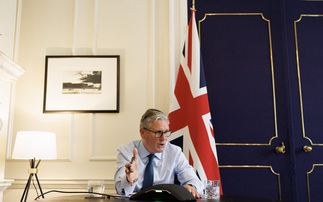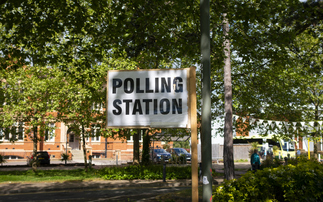Jane Burston hears Chris Huhne reiterate there will second Kyoto period without a roadmap to a legally-binding deal in 2015
The ‘high level' negotiations in Durban are well under way. Ministers and UN officials can be seen occasionally striding about the place like celebrities, followed by clicking cameras and the occasional...
To continue reading this article...
Join BusinessGreen
In just a few clicks you can start your free BusinessGreen Lite membership for 12 months, providing you access to:
- Three complimentary articles per month covering the latest real-time news, analysis, and opinion from Europe’s leading source of information on the Green economy and business
- Receive important and breaking news stories via our daily news alert
- Our weekly newsletter with the best of the week’s green business news and analysis







